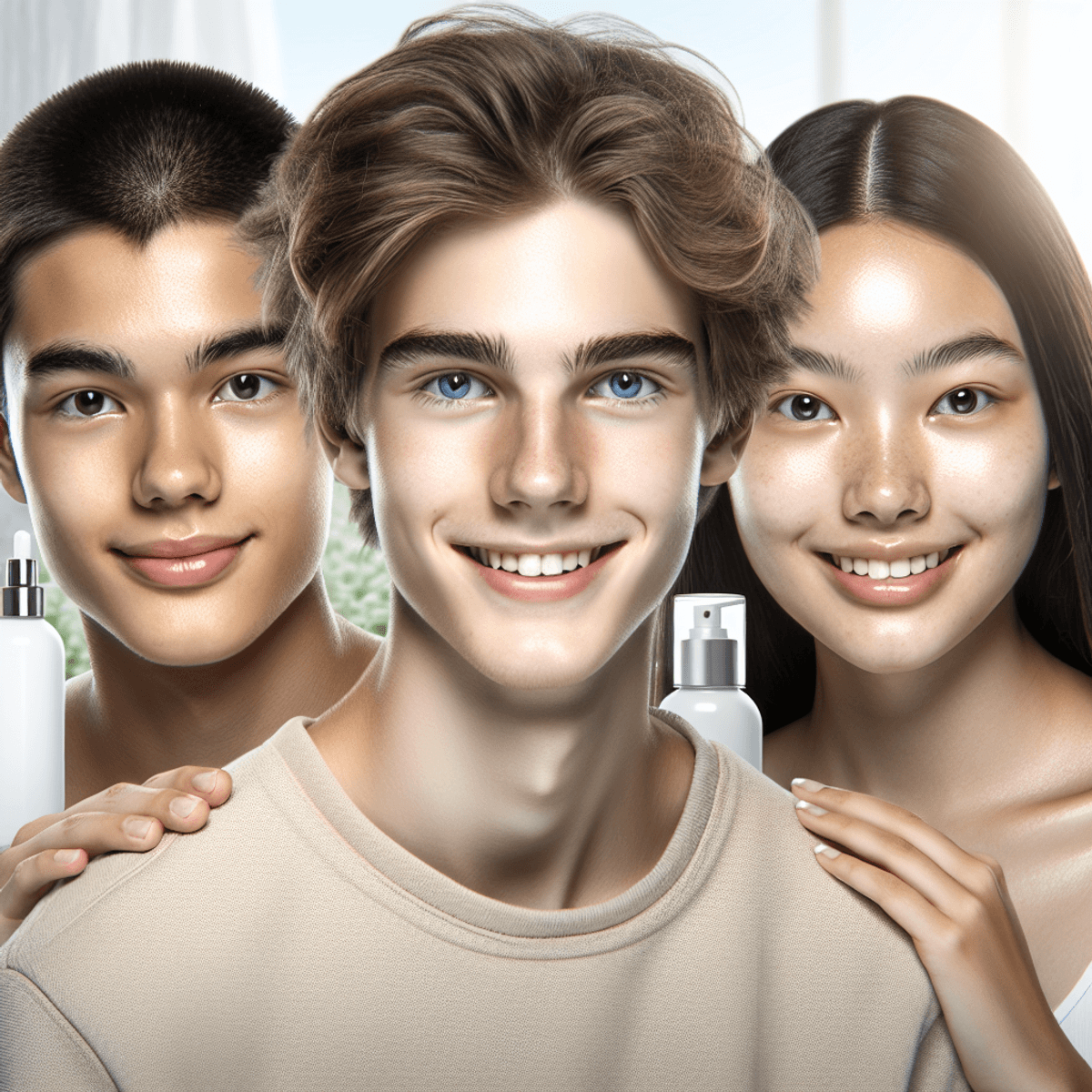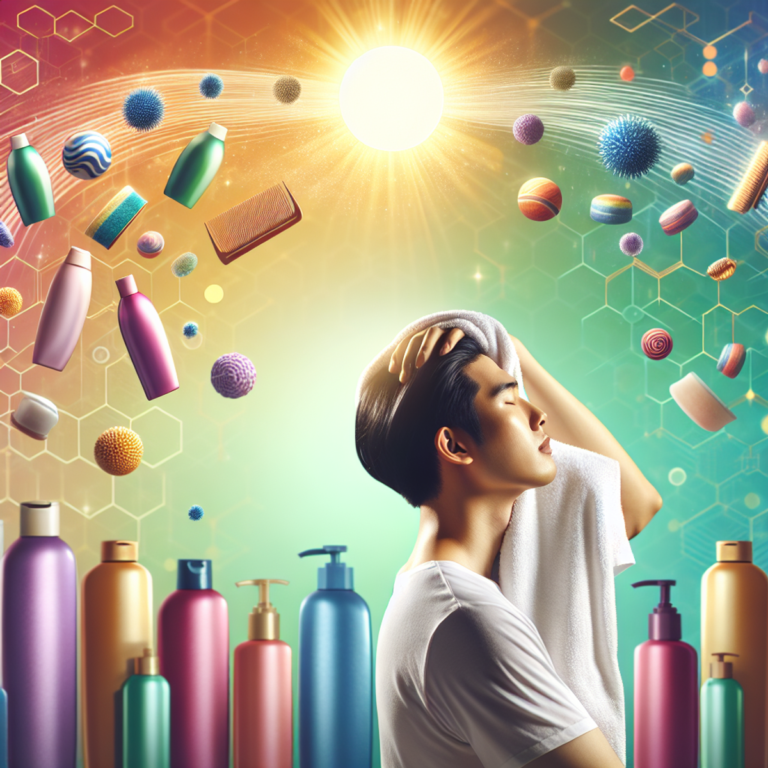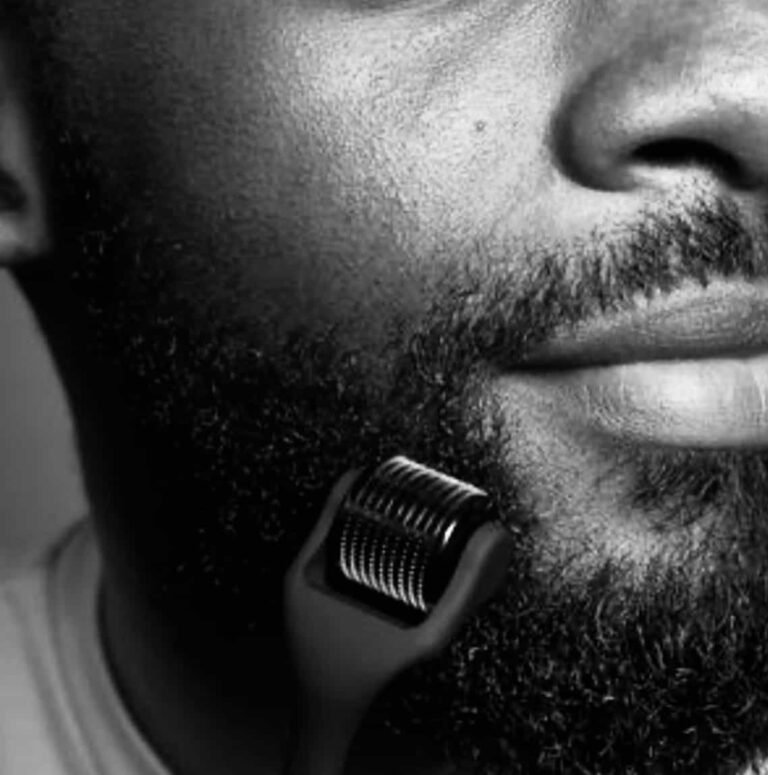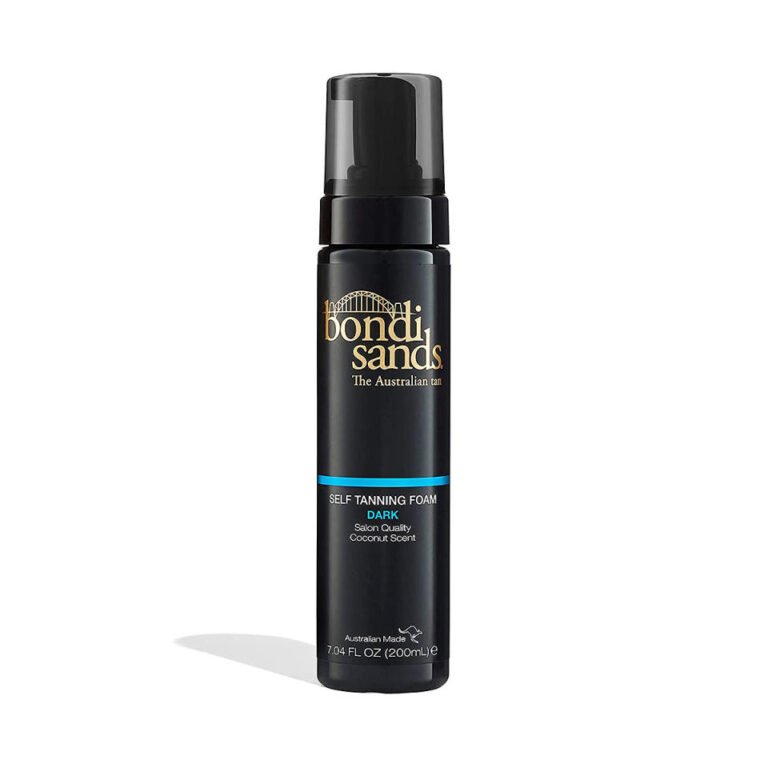11 Best Acne Treatment Tips for Teens

Introduction
Acne is a common challenge among teenagers, often impacting self-esteem and social interactions. The hormonal changes during puberty can lead to increased oil production, resulting in clogged pores and breakouts. Understanding acne and how to manage it effectively is crucial for maintaining healthy skin and confidence.
Effective acne treatment requires a comprehensive approach. This involves not only understanding the factors that contribute to acne but also implementing a consistent skincare routine and making informed choices about products. Learning how to remove pimple marks and how to get rid of small bumps on your face can make a significant difference in your skin’s appearance.
In this article, we will explore the 11 best acne treatment tips for teens. These tips will guide you through understanding the causes, establishing a skincare routine, using over-the-counter treatments wisely, and considering prescription medications when necessary. You will also learn about the importance of sun protection, choosing non-comedogenic products, practicing good shaving techniques, managing stress levels, and seeking support when needed.
Moreover, while dealing with acne, it’s essential to remember that makeup can also play a role in your skincare routine. For instance, using the right mascara like the Essence Lash Princess False Lash Effect Mascara can enhance your beauty without harming your skin. Whether you’re struggling with tiny bumps on your face or looking for ways to get rid of bumps on your forehead, these insights are designed to help you achieve clearer skin and boost your confidence.
1. Understand the Causes of Acne
Understanding the causes of acne is crucial in tackling this common skin concern among teenagers. Hormonal changes during puberty are a significant factor. As teens go through these changes, there is an increase in hormone levels like androgens, which stimulate the skin’s oil glands. This leads to increased oil production, clogging pores and creating an environment ripe for acne development.
Several factors can make these hormonal effects worse:
- Diet: Eating foods high in sugar, like snacks and drinks, can cause blood sugar spikes that may lead to breakouts.
- Stress: While stress doesn’t directly cause acne, it can make existing conditions worse by increasing hormone production.
To effectively manage and reduce acne, it’s essential to recognize these triggers. Being mindful of dietary choices and practicing stress management techniques can aid in controlling breakouts. If you’re wondering how to get rid of zits fast or how to remove pimple scars naturally, addressing these root causes is a vital first step.
For those dealing with persistent issues like tiny bumps on the face, understanding these underlying factors helps pave the way towards clearer skin. This knowledge not only empowers you to make informed choices but also forms the foundation for effective treatment strategies.
2. Establish a Daily Skincare Routine
Creating a consistent skincare routine is crucial for managing acne-prone skin, especially during teenage years. A well-structured routine not only helps in treating current breakouts but also plays a significant role in preventing future ones.
Choosing the Right Cleanser and Exfoliant
Selecting the appropriate cleanser is fundamental in maintaining clear skin. For teens, gel-based or foaming cleansers are often the best choices. These formulas effectively remove excess oil and impurities without stripping the skin of essential moisture.
Gel-Based Cleansers
Ideal for oily and acne-prone skin. They provide a deep clean to unclog pores.
Foaming Cleansers
Suitable for normal to combination skin types. They offer a balance between removing oil and maintaining hydration.
Exfoliation is another critical step in any skincare routine. It helps in removing dead skin cells that can clog pores and lead to breakouts. However, it’s essential to be cautious with exfoliation, as overdoing it can irritate the skin and worsen acne.
Benefits of Exfoliation
Prevents clogged pores, smoothens skin texture, aids in faster cell turnover.
Frequency
Limit exfoliation to 1-2 times per week to avoid irritation.
The Role of Moisturizers in Acne Treatment
Moisturizing might seem counterintuitive for oily or acne-prone skin, yet it is an essential step that shouldn’t be skipped. Proper hydration helps maintain the skin’s barrier function and prevents overproduction of oil.
Why Moisturize?
Keeps the skin hydrated, ensuring it doesn’t produce excess oil.
Choosing Moisturizers
Opt for non-comedogenic products that won’t clog pores or trigger new breakouts.
Incorporating these steps into your skincare routine can help manage problems like how to treat blackheads or how to make pimples go away. For persistent issues such as how to remove pimple scars or how to stop pimples coming on face at home, consistency is key. Regularly following a gentle routine helps prevent sudden face breakouts and supports long-term skin health.
The Role of Moisturizers in Acne Treatment
Moisturizing is a critical component of any skincare routine, even if your skin is oily or acne-prone. Proper hydration helps maintain the skin’s natural barrier, preventing it from overproducing oil that could lead to breakouts. A gentle cleanser followed by a suitable moisturizer is essential for maintaining balance.
When selecting a moisturizer, opt for non-comedogenic formulas. These products ensure hydration without clogging pores or exacerbating acne. For teens, lightweight gel-based or oil-free lotions are often ideal choices.
Key tips for effective moisturizing:
- Hydration: Keeps the skin barrier intact, reducing excess oil production.
- Consistency: Integrate moisturizing into daily routines to manage acne effectively.
- Product Selection: Choose moisturizers labeled “non-comedogenic” to support clear skin.
By incorporating a suitable moisturizer into your routine, you’re taking a proactive step towards preventing pimples and ensuring your skin remains balanced and healthy.
3. Use Over-the-Counter Treatments Wisely
When it comes to managing acne, OTC acne treatments can be a practical and accessible solution for many teens. Understanding the key ingredients can help you make informed choices about which products to incorporate into your skincare routine.
Key Ingredients and Their Functions
- Benzoyl Peroxide: Known for its antibacterial properties, benzoyl peroxide is effective in reducing inflamed pimples and preventing new breakouts. It works by killing acne-causing bacteria, making it an excellent choice for those seeking how to get rid of pimples fast.
- Salicylic Acid: This ingredient is particularly helpful in treating blackheads and clogged pores. Salicylic acid exfoliates the skin, removing dead skin cells that block pores, which can reduce pimples and prevent them from coming back on your face or forehead.
Choosing the Right Product
Selecting the appropriate OTC treatment involves considering your specific skin type and concerns:
- For oily or acne-prone skin types looking to stop pimples from coming on the face, opt for a product containing benzoyl peroxide.
- If you’re dealing with under-the-skin pimples or blackheads, salicylic acid-based treatments might be more suitable.
- Those with sensitive skin should start with lower concentrations of these active ingredients to avoid irritation.
Remember, while OTC options are convenient for reducing pimples quickly, consistency in their use is crucial for achieving lasting results.
4. Consider Prescription Medications as a Last Resort
For severe or persistent acne that doesn’t respond to over-the-counter solutions, prescription medications might be necessary. Consulting a dermatologist can provide clarity on how to get rid of cystic pimples or shrink them overnight.
Here are some options for prescription treatments:
- Topical Antibiotics: These are often prescribed for inflamed acne, helping reduce bacteria and inflammation on the skin’s surface. However, prolonged use can lead to antibiotic resistance, making it essential to follow professional guidance.
- Isotretinoin: Known for its effectiveness against cystic acne, isotretinoin is a potent option but comes with potential side effects such as dryness and increased sensitivity. It’s crucial to discuss these with your dermatologist to weigh the benefits against risks.
Understanding how to shrink a pimple in minutes or reduce redness quickly might not always be feasible with prescription medications due to their long-term approach. For issues like tiny bumps on the forehead, professionals can recommend tailored treatments that address specific concerns without exacerbating existing conditions.
5. Avoid Popping Pimples at All Costs!
Popping pimples might seem like a quick fix, but it can lead to several undesirable consequences:
- Scarring: Squeezing a pimple can damage the skin tissue, leaving behind permanent scars.
- Infection: Introducing bacteria from your fingers can make the situation worse, leading to more severe infections and inflammation.
- Prolonged Healing: Disrupting the natural healing process often results in longer recovery times and potential for post-inflammatory hyperpigmentation.
Instead of resorting to pimple popping, which is generally discouraged by dermatologists as it can worsen the condition of your skin, consider these effective alternatives:
- Spot Treatments: Products containing salicylic acid or tea tree oil can help reduce inflammation and speed up healing. These ingredients work by unclogging pores and minimizing redness.
For those wondering how to get rid of pimples or seeking methods on how to remove pimples overnight, patience combined with targeted treatments is key. Consistent application of these alternatives can effectively address issues like how to get rid of back pimples or pimples on the face without causing further damage.
Exploring options on how to remove pimples naturally and permanently involves understanding your skin type and triggers, allowing for tailored solutions that prevent future breakouts while promoting healthier skin over time.
6. Protect Your Skin from the Sun’s Harmful Rays
Sun exposure can worsen acne and cause dark spots after pimples heal. To effectively manage acne-prone skin, incorporating sun protection into your daily routine is crucial. Here’s how:
- Use Non-Comedogenic Sunscreen: Choose a sunscreen specifically labeled as non-comedogenic to prevent clogged pores while protecting your skin. Applying it daily is essential, regardless of the weather, to shield against harmful UV rays.
- Address Existing Dark Spots: For those wondering how to remove dark spots caused by pimples or how to get rid of spots on the face, consistent sun protection combined with targeted treatments like Vitamin C serums can promote even skin tone.
Incorporating these practices not only helps manage acne but also supports overall skin health. A thoughtful approach to sun protection can significantly impact your journey in addressing teenage pimples and avoiding further complications.
7. Choose Non-Comedogenic Products Across All Categories
Understanding what non-comedogenic means is crucial in selecting cosmetics and skincare formulations that won’t exacerbate acne. These products are specifically formulated to prevent clogged pores, making them ideal for individuals with acne-prone skin.
When looking for non-comedogenic makeup products:
- Foundation: Opt for liquid or powder-based foundations labeled as non-comedogenic. Mineral makeup is often a good choice.
- Moisturizer: Select lightweight, water-based moisturizers that hydrate without adding excess oil.
- Sunscreen: Choose non-comedogenic sunscreens to protect skin while avoiding pore blockage.
These choices help tackle questions like how to stop pimples coming on face permanently by reducing the likelihood of clogged pores. With these products, you can also learn how to remove pimples overnight at home by maintaining clear skin through proper product selection.
Exploring non-comedogenic options across your skincare and cosmetic routines can be an effective strategy in your quest to understand how to get rid of spots on face quickly, and maintain overall skin health.
8. Practice Good Shaving Techniques if You’re a Teen Boy
Shaving can be tricky, especially when dealing with acne-prone skin. To prevent pimples and irritation:
- Use a Clean Razor Blade: Ensure your razor is sharp and clean to minimize the risk of infection and irritation.
- Avoid Direct Pressure on Pimples: Gently shave around active breakouts to reduce the chance of further injury or inflammation.
- Shave with the Grain: Follow the direction of hair growth to avoid aggravating sensitive skin.
- Prep Your Skin: Soften your facial hair with warm water and use a gentle shaving cream or gel to protect your skin.
These techniques help stop pimples from worsening and support efforts in how to treat pimples effectively.
9. Be Patient with Treatment Results—It Takes Time!
Understanding the importance of patience in acne treatment is crucial. Most topical treatments require consistent use over several weeks before you notice visible improvements. This can be frustrating when you’re eager to learn how to get rid of a pimple in an hour or tackle issues like how to get bumps off your face. Yet, persistence in your routine will pay off.
While waiting for results, consider addressing other skin concerns such as how to get rid of little bumps on arms or how to get rid of red marks left by spots. For these, exploring options like pimple scar removal creams or trying out home remedies for pimples might offer additional support in improving skin texture and tone.
10. Manage Stress Levels Effectively
Chronic stress is more than just a mental burden; it plays a significant role in acne development. Hormonal imbalances triggered by stress can cause oil glands to overproduce, leading to breakouts. Finding effective ways to manage stress is key to maintaining clear skin and overall well-being.
Healthy Coping Mechanisms:
- Exercise: Regular physical activity helps reduce stress hormones and releases endorphins, which improve mood and promote relaxation.
- Mindfulness Practices: Techniques such as meditation, yoga, or deep-breathing exercises can help calm the mind and alleviate stress. It’s important to understand how much stress is too much for your health.
- Adequate Sleep: Ensuring enough rest each night can reduce cortisol levels, a hormone linked to stress-induced acne flare-ups.
Incorporating these practices not only aids in pimple treatment but also enhances your pimple solution strategy by addressing the root causes of breakouts. Alongside traditional pimple remedies and blind pimple treatment options, tackling stress provides a comprehensive approach to pimples on face removal tips and pimples on buttocks home remedies. Also, it’s beneficial to explore stress awareness resources for additional insights into managing stress effectively.
11. Seek Support from Friends, Family, or Professionals if Needed
Experiencing acne during teenage years can be emotionally challenging, often leading to issues such as body dysmorphic disorder. It’s essential to discuss feelings openly about having acne rather than keeping them bottled up. Sharing your concerns and insecurities with friends or family can provide comfort and reassurance.
- Talking with peers who understand the struggle of dealing with pimples may help you feel less isolated.
- Family support can offer encouragement and practical advice to manage skin health effectively during this challenging phase of puberty.
If acne significantly impacts your self-esteem or mental well-being, consider seeking professional help. Therapy can be a valuable tool for navigating emotional distress related to appearance, which is often a common mental health issue during adolescence.
For additional support, exploring treatment options like the best cream to remove pimple marks fast or specialized solutions for pimples on buttocks treatment might aid in improving both physical and emotional aspects.
Finding the best way to get rid of pimples often involves a combination of emotional support and effective skincare strategies.
Conclusion: Embrace Your Unique Journey Towards Clearer Skin!
Acne treatment is a personal journey that looks different for everyone. Remember, setbacks might occur, but persistence and patience are key. Each step you take brings you closer to achieving clearer skin. Embrace the process and keep experimenting until you find what works best for you. Don’t lose hope—clear skin is attainable with time and dedication.
Whether you’re aiming to learn how to get rid of under the skin pimples overnight or seeking long-term solutions, these 11 Best Acne Treatment Tips for Teens offer a comprehensive guide on how to clear pimples effectively. Stay confident and committed on your path to healthier skin!
FAQs (Frequently Asked Questions)
What are the main causes of acne in teens?
Acne in teens is primarily caused by hormonal fluctuations during puberty, which lead to increased oil production. This excess oil can clog pores and trigger breakouts. Other common triggers include dietary factors and stress.
How can I establish an effective daily skincare routine for acne?
An effective skincare routine for acne should include a gentle cleanser, a suitable exfoliant, and a non-comedogenic moisturizer. It’s important to cleanse your face twice daily, exfoliate regularly but not excessively, and keep your skin hydrated to manage acne effectively.
What over-the-counter treatments are best for treating acne?
Common over-the-counter (OTC) treatments include benzoyl peroxide and salicylic acid. Benzoyl peroxide is effective for inflamed pimples, while salicylic acid helps with blackheads. Choose products based on your specific skin type and concerns for the best results.
When should I consider prescription medications for acne?
Prescription medications should be considered when over-the-counter treatments are ineffective or if you have severe or persistent acne. Options include topical antibiotics for inflammation or isotretinoin for cystic acne, but it’s essential to discuss potential side effects with a healthcare provider.
Why should I avoid popping pimples?
Popping pimples can lead to increased risk of scarring and infection. Instead of squeezing, it’s recommended to use spot treatments containing salicylic acid or tea tree oil, which can help reduce inflammation without the risks associated with popping.
How can I protect my skin from sun damage while managing acne?
Protecting your skin from harmful UV rays is crucial, especially when using acne treatments that may increase sensitivity to sunlight. Use a broad-spectrum sunscreen that is non-comedogenic to avoid exacerbating breakouts while ensuring your skin remains protected.










